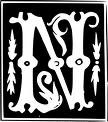"They both had serious reservations about the direction quantum physics was taking, but stepped out of the fray into another place altogether - the fifth dimension." - The Quantum Ten, by Sheilla Jones (2008). ;) Per the nuggets of good advice that popped up today in the blogosphere, I create/blog about my current muddled state of thought.
"Consider how the problem will be solved..." Recapping: The big problem I have is this - What laws govern a system that produces all aspects of classical physics experience and the consistently observed exceptions to those laws? (Auxiliary problems abound.)
Unfortunately, all indicators right now are pointing to the need to study consciousness and the mechanisms that give rise to the various aspects of conscious experience. (I say 'unfortunately' because mentioning 'consciousness' is often enough to cut your audience by at least half.) But this is also a problematic perspective because, in order to produce something scientifically useful, you end up attempting to map elements of subjective mental experience onto external knowledge structures. 'Why is that problematic?', you ask.
Consider: If I want to say that the mechanisms involved in object classification might give rise to our experience of gravity, then with what structures do I identify those mechanisms? If gravity isn't an absolute external force, then how can I justify introducing neurons or neurochemistry into the model? When does external knowledge reflect something that is absolute? (Rabbit hole!)
What remains to be discovered is whether or not I can extricate myself from this predicament and preserve something that has validity beyond a subjective perspective...
Thursday, September 18, 2008
Subscribe to:
Post Comments (Atom)


No comments:
Post a Comment